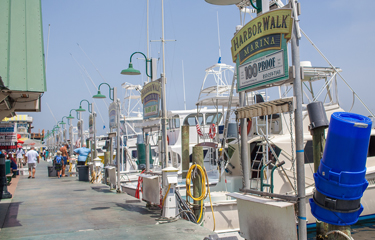Gulf of Mexico charter operators fight back against lawsuit mandating electronic monitoring

A week after receiving class-action status in its lawsuit against the U.S. Department of Commerce, NOAA, and NOAA Fisheries, a nonpartisan civil rights group has filed an amended lawsuit regarding NOAA Fisheries plan to monitor charter boats in the Gulf of Mexico.
A group of 11 small businesses and fishing-boat owners claim that a policy requiring electronic monitoring and reporting infringes on their operations. Last July, NOAA Fisheries issued an order to electronically submit reports for each fishing trip, even if no fish were caught. It also requires boats to notify the agency before departing on any kind of trip.
“Warrantless GPS surveillance of even a suspected criminal’s vehicle is indisputably unconstitutional,” said Sheng Li, a lawyer for the New Civil Liberties Alliance (NCLA). “Yet, NOAA is mandating 24-hour GPS surveillance of countless boat owners for running legitimate businesses. It does not take a legal scholar to spot the constitutional violation.”
The amended lawsuit filed Wednesday, 9 June, in a U.S. District Court in Baton Rouge, Louisiana, also objects to NOAA Fisheries mandating captain reveal charter fees, number of paying passengers, and the amount of fuel used. That information, the plaintiffs claim, does not help determine the status of fishing stocks in the Gulf of Mexico.
The amended complaint came one week after U.S. District Judge Susie Morgan approved the plaintiffs’ request for class-action status. With that designation, more than 1,000 charter operators are now eligible to join the case, according to an NCLA statement.
The federal government opposed the motion for class-action status. In a filing on 11 December, 2020, U.S. Deputy Assistant Attorney General Jean E. Williams and Shampa Panda, a U.S. Justice Department trial attorney for wildlife and marine resources, said granting class-action status would lead to delays in the case and increase the costs.
They also said that there was “significant disagreement” among charter-boat owners.
“A survey of the administrative record that was lodged in this case reveals that there are a number of comments from the owners and operators of federal permitted charter vessels on the proposed rule that demonstrate that a number of permit holders are in favor of the final rule, for reasons ranging for accountability to accuracy in data collection,” the government argued.
However, Morgan determined that the plaintiffs met the standard for class-action status.
Plaintiffs seek a decision that the electronic monitoring order is unconstitutional as the data charter owners and operators collect is private property.
Photo courtesy of Stephanie A Sellers/Shutterstock






Share